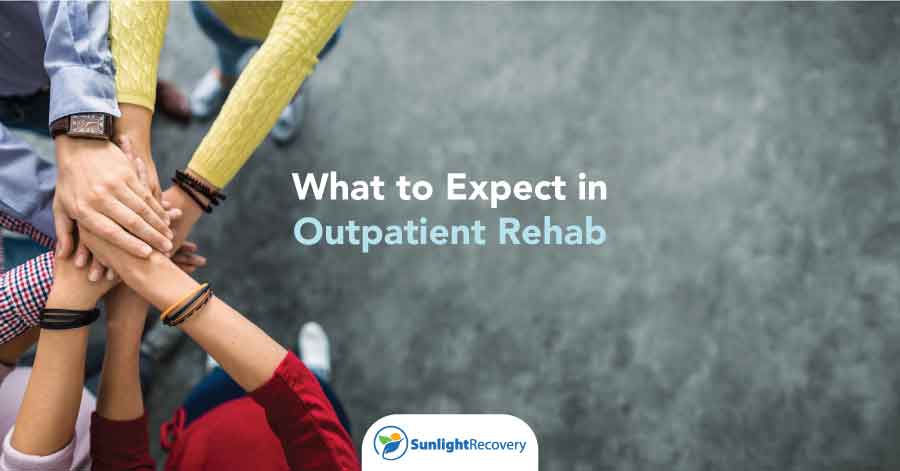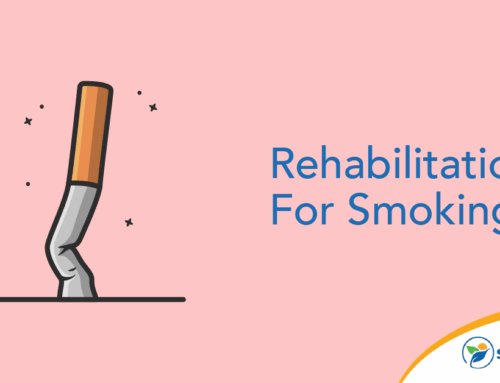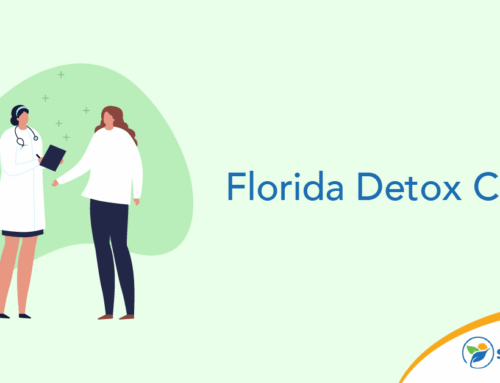Outpatient facilities focus on more of a part time experience when it comes to fighting addiction and is also an effective way to regain control of your life in a more flexible way. Many individuals are finding that they can re-enter sobriety in their own time with a healthy support system instead of being left to do it on their own or in an around-the-clock facility. The recovering addict is given informational tools and placed within a community that surrounds them with constant reassurance that they will overcome their addiction while also allowing them to live their daily lives like they are still on a normal schedule.
What Is Outpatient Rehab?
There are two main types of outpatient rehab: general outpatient and intensive outpatient. When someone is admitted into general outpatient rehab, this means they still have flexibility within their schedule. They are able to time their counseling sessions and attend their meetings around their already existent outside activities. As opposed to inpatient facilities that have around the clock care, outpatient intensive rehab facilities are similar but focus more on mild addictions that can be treated over a longer period of time.
Most of the rehabilitation process is through support groups and counseling. The attendee will go about their regular day-to-day life while still going to counseling or group meetings 3-5 days a week. Most outpatient programs require around 10-12 hours of completed therapy a week, as well as checking in with counselors on a regular basis.
A Typical Day In Outpatient Rehab
The biggest thing that is stressed in outpatient rehab is that of a structured schedule. Counselors recommend that patients wake up every day at a certain time and give them tasks to stay busy throughout the day. This gives the patient an outlet to focus on rather than their addiction, as well as reminding them how important it is to place other priorities above using the substance they’ve been abusing.
After completing their day of school or work, they are required to attend group support meetings. These may include other individuals with similar addictions that take turns listening to and sharing their stories or updates with family members to inform them of the patient’s progress. They also meet with their counselors to discuss any changes or questions the patient may have, and the counselor will give them their schedule for the week.
Other programs such as drug and alcohol refusal training, assertiveness training and stress management training can be implemented into their treatments, as well. These programs take what they’ve been talking about in group meetings and counseling sessions and allow them to practice applying them in everyday life. These have been found to be the most effective part of outpatient rehab treatments.
Types of Therapies Used
There are many different therapies used in outpatient rehab such as:
- Pharmacotherapy: Medicines and medical techniques are used treat disorders that the patient might have during the rehabilitation process. These substances are monitored under strict watch. This helps the patient to detox from the substance slowly instead of all at once.
- Psychosocial Interventions: This is another term for a group meeting setting. Primarily verbal to allow patients to interact with one another and share stories of their recoveries and experiences while using. This gives the patient the support they need from people going through similar situations.
- Intensive Outpatient Treatment: Most of the time, individuals who are admitted into these intensive outpatient treatments have been released from inpatient treatment facilities and still need further care. These groups meet 3 or more times a week for 2 or more hours at a time.
- Psychoeducation Services: This is another term for classes or seminars that are used during the therapy process such as behavioral therapy and drug refusal training. Experts on the subject teach the patients valuable techniques to use in their everyday life to avoid returning to drug use.
Is Outpatient Rehab the Right Fit?
General outpatient rehab is effective for those with a mild addiction that can easily be convinced that their condition will worsen if they do not receive immediate help. These individuals are in the early stages of becoming severely addicted to the substance they are abusing.
Outpatient rehab is a great alternative to inpatient for individuals who want to maintain their daily routine or have to hold a job to support their family or want to stay in school so they can achieve their degree. The treatment is also much less costly than that of inpatient intensive treatment because it does not require the patient to live on the premises of where the rehabilitation is taking place.
Although it is very beneficial for some individuals, there are a lot of instances when outpatient rehab is not the best fit for someone looking to be treated for their addiction. If a person has a history of relapsing easily after completing time in rehab, outpatient treatment is probably not a sufficient option. Treatment is not intensive enough for these individuals because they require constant supervision in order to not fall back into old patterns. It is also not a great option for people who face constant temptation in their everyday lives like living with roommates or family members who also abuse the substance.
More Information on Outpatient Rehab
When it comes to deciding which rehabilitation treatment is the best fit, our team at Sunlight Recovery is always willing to evaluate your specific situation to determine what will be right for you. Whether you are in need of a less intensive treatment like our outpatient rehab options or maybe a more intensive inpatient rehab, we will guide you in the direction our team thinks will be most beneficial to you. We offer many programs specially created to ensure that you stay on the right track towards full recovery from your addiction.
If you or a loved one has decided that it is time to explore the options regarding rehabilitation facilities, please do not hesitate to Contact Us today. We will be willing to answer any and all questions and hope to guide you in the best direction.








Leave A Comment